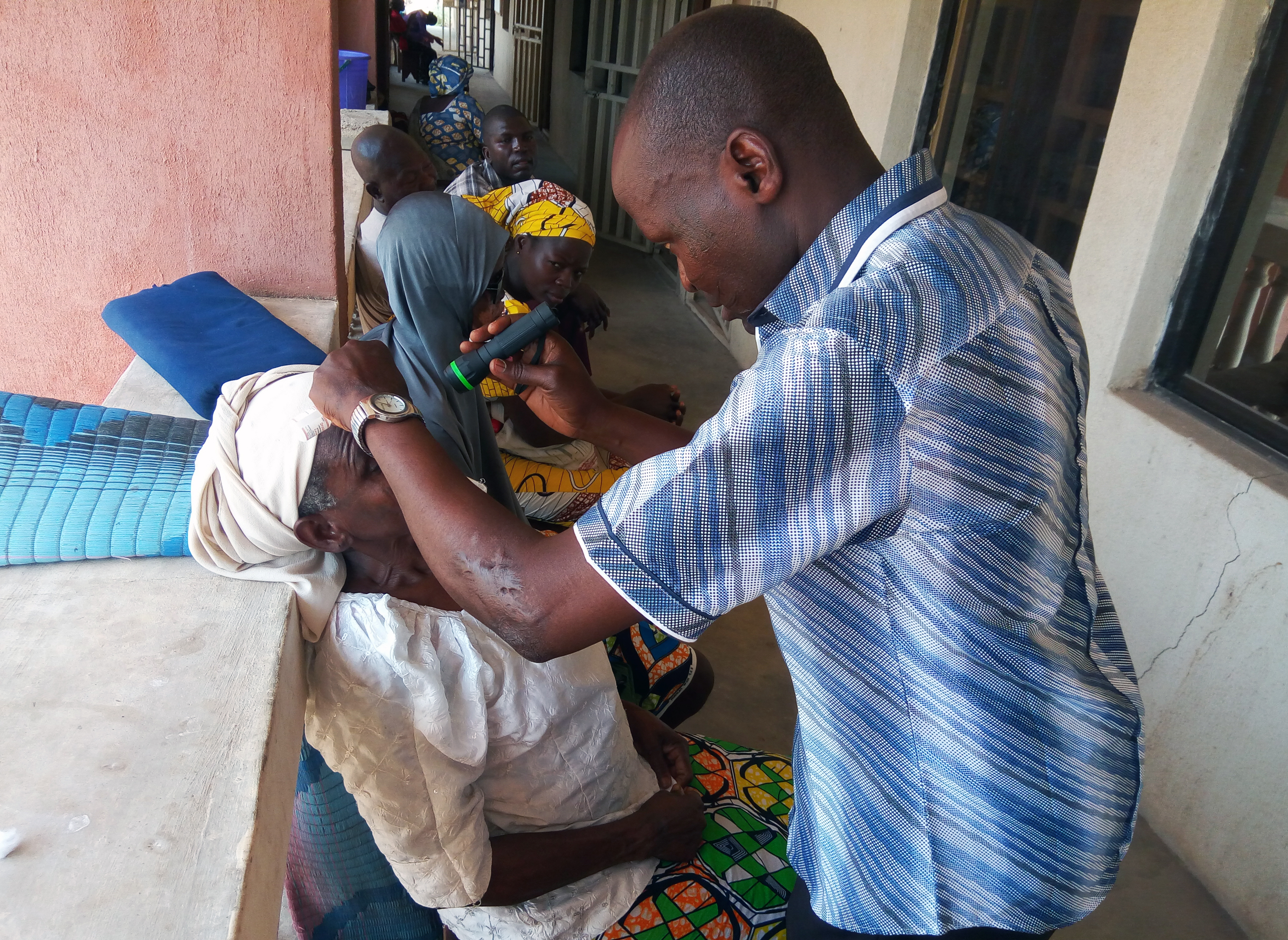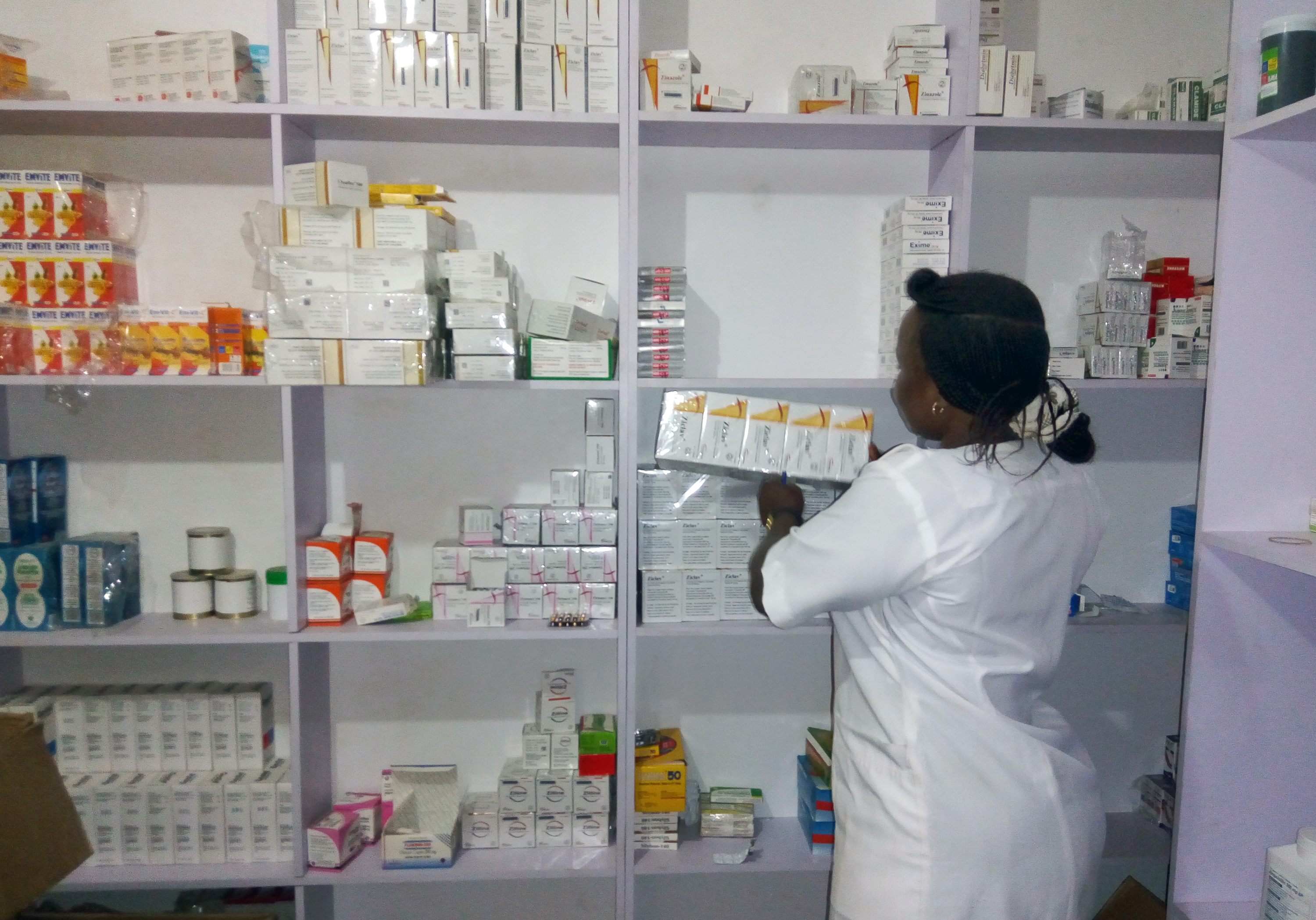The mobile clinic and rural health care program of The United Methodist Church in Nigeria are saving lives in remote areas that aren’t reached by government health programs.
The United Methodist Health Care Department is making a huge impact by “reaching out to the rural areas mostly abandoned by the government in terms of medical care,” said John Yakubu, a department board member. “This department is giving hope to the less privileged women and children.”
The health care department includes the Jalingo hospital, 15 clinics around the country where people can get basic checkups and needed drugs, four maternity clinics and a mobile clinic.
Yakubu said a $173,217 grant from United Methodist Global Ministries for adding 30 beds to the hospital in Jalingo will make a difference, too. Global Ministries also provided a $147,254 grant in 2016 to support renovation of the four maternity clinics and pre-natal and maternal care, said Dr. Olusimbo Ige, executive director of the United Methodist Committee on Relief & Global Health Unit.

A woman has her eyes examined by a medical attendant while other patients sit waiting in line at Gwandum Clinc in Nigeria. Photo by the Rev. Ande I. Emmanuel, UMNS.
Started in the early 1980s with the mission of promoting the Gospel by providing quality health care services in rural areas, the denomination’s health care department now has a mobile clinic that provides care to people in Jalingo, Karim Lamido, Bali and Shangom counties in the northern region of Nigeria.
Lazarus Iliya Filiya, administrator of the United Methodist Health Care Department in Nigeria, said the department headquarters, which houses the hospital, moved from Zing to Jalingo because of constant tribal conflict in Zing, as well as the fact that Jalingo provided easier accessibility to rural communities. The main office in Jalingo has two medical doctors, four nurses and five trained community health workers, two laboratory trained technicians and seven support staff. These staff also go to rural areas in the mobile clinics.
The church health care system is popularly called the Rural Health Program.
There are four maternity clinics, one in each conference. Those clinics — in Munga Dosso, Worom, Bambuka and Gwandum, care for 40-50 women and children each day. The clinics provide care for mothers and children against six deadly diseases: measles, tuberculosis, poliomyelitis, diphtheria, whooping cough and tetanus. The global health grant to clinics helped provide pre-natal and maternal care program for pregnant women and children below the age of 5 free of charge as part of the Abundant Health Initiative to reach 1 million children.
An eye clinic cares for 15 to 20 people every day, said Mark A. Tukur, an ophthalmologist at the hospital in Jalingo. Tukur said most of the patients need cataract or other eye surgery, and the clinic also distributes eyeglasses.
HOW TO HELP
United Methodist Global Ministries supports health care in Nigeria and other countries through Global Health, Advance #3021770.
An HIV/AIDS clinic provides antiretroviral drugs and care for people living with HIV/AIDS.
The mobile clinic visits rural areas and provides a variety of care depending on the needs of the people in the area.
As part of its Child Maternal Care, the health care department this year has distributed long-lasting, insecticide-treated mosquito nets to 1,130 pregnant women in these rural communities.
Margret Daniel, who was at the Gwandum maternity clinic with her 9-month-old baby, said she thanked God for the health care ministry, which has provided care that has increased life spans.
“Without this medical care, many people would have died of diseases that are preventable and curable,” Daniel said.
At the maternity clinic in Worom, Mallam Sule Naban, the Mai Angwa Worom or local community chief, said the maternity care is saving women and children who are the most vulnerable to communicable diseases. “Now, we have a remedy for medical challenges affecting our community. We are very happy and we thank the missionaries for their work,” he said.
At the medical facility in Jalingo, Esther Emmanuel said she had been treated at many places for high blood pressure, but only started feeling better after her son, a pastor, brought her to the United Methodist hospital.

Pharmacist Dickens Ayuba picks up a carton of medicines at United Methodist Church of Nigeria General Hospital in Jalingo, Nigeria. Photo by the Rev. Ande I. Emmanuel, UMNS.
“They put me on observation for three days and gave me some drugs, which were very different from those I have taken before. Now, I felt healed in my whole body. I no longer experience sleeplessness and severe headache. I am happy,” she said.
Matthew Adamu, treated for tetanus at the facility in Munga Dosso, agreed the United Methodist hospital was better than other places.
“Here, the drugs are really genuine. You can see the difference from the sachet. Apart from having genuine drugs, they pay extra attention to their patients. I am calling on people to patronize this hospital,” he said.
Dickens Daniel, a pharmacist at the head office in Jalingo, said all drugs are procured from the Christian Health Association of Nigeria. “We have maintained steady quality in our drug distribution program,” Daniel said.
Emmanuel is the conference secretary for the Southern Nigeria Conference and is the son of Esther Emmanuel quoted in the story.
News media contact: Vicki Brown at 615-742-5470 or [email protected]. To read more United Methodist news, subscribe to the free Daily or Weekly Digests.
Like what you're reading? Support the ministry of UM News! Your support ensures the latest denominational news, dynamic stories and informative articles will continue to connect our global community. Make a tax-deductible donation at ResourceUMC.org/GiveUMCom.






